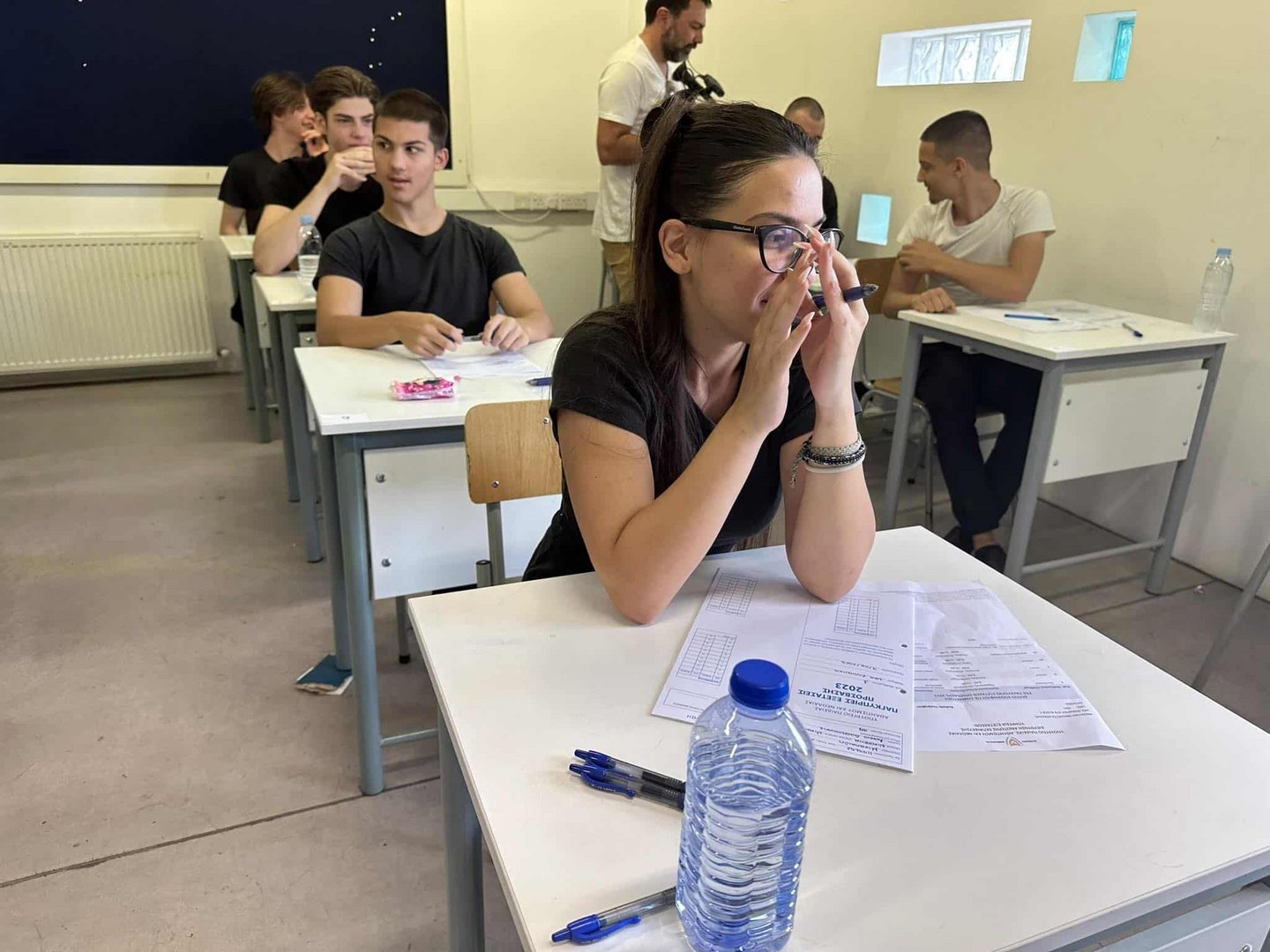Last Monday there was an outcry by parents of students because the mathematics paper of the university entrance exams (also known as the Pancyprian exams) was very difficult and the time for completing it inadequate. This was what the students said, and parents’ associations were quick to make a big fuss, complaining to the media and demanding remedial action by the education ministry.
The head of the ‘organised parents of secondary education’, Loizos Constantinou claimed this was the “most difficult and longest exam of the last 15 years”. The questions had not been clearly set out by the examiners, said Constantinou, adding that even teachers had to use a dictionary for the meaning of some of the words. He also said that he had been in touch with the education ministry seeking measures to help the students.
Taking up the campaign, a newspaper columnist on Tuesday appealed to the Education Minister Athina Michaelidou, telling her it was her “responsibility to find a solution to the crime of mathematics”. There was “rage and frustration among the majority of students, parents and teachers because the maths exam was extremely difficult” and according to those involved “victimised many students”.
The absurdity continued on Tuesday with Constantinou targeting the examiners, who he said were trying to prove they were great minds by making the exams difficult. Although the names of the people who set the exams were kept secret, Constantinou said he knew the specific examiner, who was setting exams for the last three years, during which “we have a problem with the level of difficulty of the exam”.
Minister Michaelidou jumped on the bandwagon, happily scapegoating the examiners, whom her ministry actually chose, after a presumably rigorous selection process. “Examiners who do not do their job for the benefit of the children, must, at last, be subject to some kind of sanction and a good solution would be for them not to participate in setting questions for the next exams.” The exam in question was “difficult and unfortunately students were hard done by”, she said.
The pandering to the mob by the minister, hanging her staff out to dry, was more embarrassing to her than the examiners, but she did not realise it as her objective was to avoid responsibility. She could have said that the maths paper was a bit more difficult than usual, but that this would be taken into account when the papers were marked, instead of throwing the examiners to the wolves.
Public education was surrendered to mob rule by this government from the start. One of the election pledges of President Christodoulides was to scrap twice-yearly exams which students, parents and teaching unions had been campaigning against since their introduction. It did not matter that education policy makers, after studying the matter, concluded that twice-yearly exams would benefit students as they would work more systematically through the school year and be able to identify any weaknesses.
The president preferred to go with the expertise of the mob – teaching unions that did not want the extra work, students that wanted an easy life, parents who do as their children ask them to do and parties pandering to protesters. This paved the way for placing public education at their mercy. Education professionals at the ministry were sidelined and the government relied on the expertise of schoolkids, their parents and union bosses wanting to keep their indolent members happy.
As if to underline her contempt for educational expertise, Michaelidou, despite her many education qualifications, invited the newly elected MEP Fidias Panayiotou, who specialises in superficiality, to her office to listen to his suggestions on school education. It is all part of the overall scheme of having education policy being dictated by people who know nothing about it, in the name of stakeholders’ democracy.
When President Christodoulides said he would listen to the people, did he actually mean his government would have policy dictated by crowds? This is how organised parents appear to have interpreted his words and they now see it as their responsibility to pass judgement on exam questions. The sad thing is that nobody in the government – certainly not the education minister – has indicated that parents may have misunderstood the president’s words.







Click here to change your cookie preferences